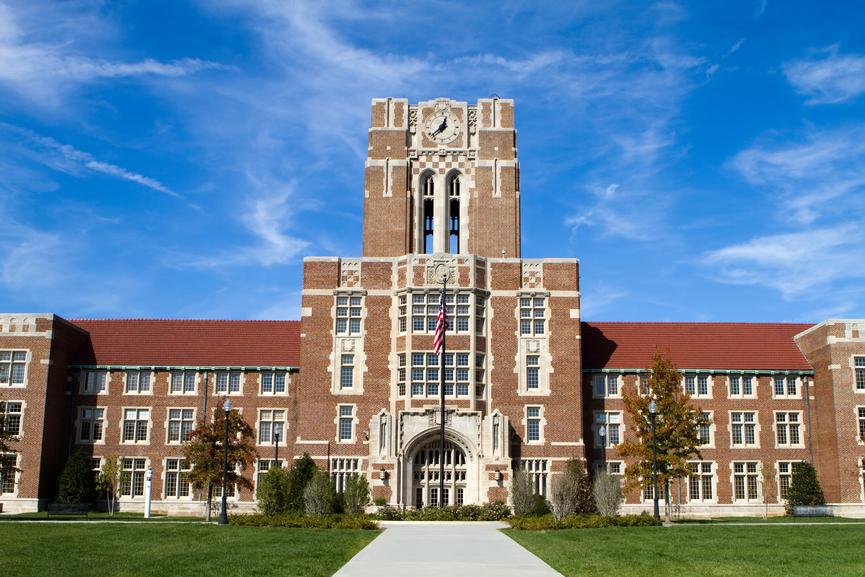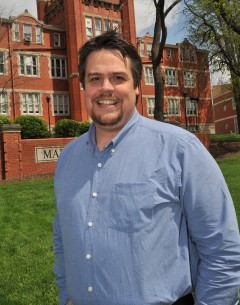Prevalence of autism spectrum disorders (ASD) has risen significantly since first described in the 1940s. The Center for Disease Control estimates currently 1 in 68 children in the United States lives with an ASD diagnosis, and that 46% of those diagnosed have average to above average intelligence.
A large body of literature describes the significant, life-long difficulties faced by many individuals diagnosed with ASD. The support needs for college students diagnosed with more traditional disabilities are well documented.
There is a lack of information, however, in regard to effectively supporting the college instruction of students with Asperger’s Disorder, and how to support their navigation of a campus society.
Ellison, Clark, Cunningham, and Hansen (2013) explored the phenomenon of providing effective supports to college students diagnosed with Asperger’s Disorder. Investigators convened a panel of experts to provide input on the topic, and then categorized common themes identified by panel members. Their research was published in the peer-reviewed Southern Regional Council on Educational Administration Yearbook 2013.
The survey resulted in the creation of the Benchmarks of Effective Supports for College Students with Autism Spectrum Disorders. That documents is available as a PDF file on this website (you can find it at the end of this article).
Research Conclusions on the Supports Needed Most for College Students with ASD:
1. Social Challenges, Independent Living Skills, and Cognitive Organizational Skills were mentioned as a need more often by expert panelist than was Academic Challenges.
This suggests panelists agree that students diagnosed with Asperger’s Disorder are, generally, intellectually capable of performing in the classroom but struggle with the social and organizational aspects of the college lifestyle;
2. Resources dedicated to meeting the Social Challenges of students diagnosed with Asperger’s Disorder are considered integral to effective college support;
3. Traditional disability services are ineffective for supporting this student population due to:
(a) its historical focus on meeting academic rather than social needs,
(b) its lack of resources, and
(c) its general lack of expertise regarding the disorder;
4. The panel of experts connected self-advocacy and disclosure more to academic success than to other aspects of campus life;
5. Mental health services are identified as a necessary support for college students diagnosed with Asperger’s Disorder. These services, however, were mentioned fewer times by the panelist than the need for:
(a) dedicated staff with specialized knowledge to provide supports;
(b) having a well-informed campus community, and
(c) utilizing a well-staffed support program with expertise in the disorder. An equal number of panelists mentioned the need for having staff to teach students to identify on-campus resources and supports, which would generally include student mental health services;
6. The panel of experts revealed faculty and staff attitudes may play a role in college success for college students with Asperger’s Disorder. More panelists expressed a need, however, for increased on-campus knowledge and information about the disorder.
7. Finances and Resources were identified by the majority of panelists as barriers to academic and non-academic success alike due to the high cost of hiring personnel with expertise.
Attachment: Benchmarks of Effective Supports for College Students with ASD
by Dr. Marc Ellison
Marc Ellison, Ed.D. is a Licensed Professional Counselor (LPC) and an Approved Licensed Professional Supervisor (ALPS) who has worked nearly 30 years to provide person-centered support, services and advocacy to individuals who live with autism spectrum disorders, their families and those who support them. He has supported individuals with ASD throughout their lifespan, as they moved to the community from state-supported institutions, searched for and obtained employment, entered into relationships, and transitioned into college. Dr. Ellison is the Interim Executive Director of the West Virginia Autism Training Center, and a part-time professor at Marshall University.
A graduate of Abilene Christian University, Jennifer had a long career in TV Broadcasting. Upon learning her oldest son Sam had a form of Autism called Asperger’s Syndrome, she left her career and became a full-time mother to both of her sons. Jennifer elicited the participation of her family and together they produced several independent programs including a children’s animated series titled Ameriquest Kids, as well as a documentary and book titled, Coping to Excelling: Solutions for School-age Children Diagnosed with High-Functioning Autism or Aspergers Syndrome. She formed the nonprofit Asperger101 to provide on-going free resources related to ASD at Aspergers101.com and has implemented the Texas Driving with Disability Program and continues to grow the statewide initiative today. She and her husband have recently retired to their property in the Texas Hill Country.




John Robison works with Landmark College and William and Mary. Clemson in SC is starting a great program. I had a student go to Embry Riddle and was happy last I heard. Lynn in FL has good resources.
I simply could not get away from your site in advance of advising that I seriously loved the normal information and facts a person provide with your targeted traffic? Will be once more frequently to be able to scrutinize brand new blogposts